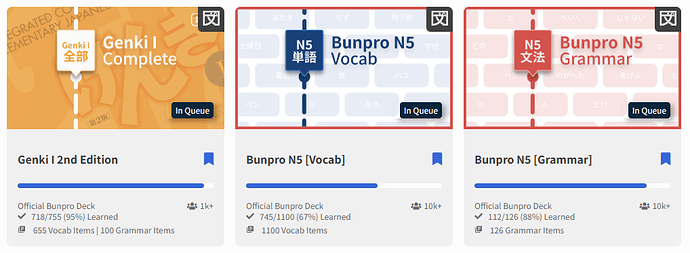Greetings Bunpro Community. The title may sound crazy but it’s not clickbait as I am going to lock the f*** in HARD.
Initial Exposure
A little bit of background: Japanese first came on my radar like, a bit over 8 years ago (october 2016), back when I was still only just getting my bachelor’s in computer science.
Back when I thought academia was for me, and wanted to eventually get a PhD, I came across some robotics research from Japan and figured that this is the direction I want to go in. I then found out through a friend that my university was offering Japanese language classes and I was like

I had a free period in the morning before my classes and for around 3-4 months or so I would attend and steadily get through what I would later realize are Genki I scans. Unfortunately, next semester came, my schedule changed, and I no longer had the time slots available to continue learning.
For whatever reason, I had not considered continuing on learning it on my own, and so came and went my initial exposure to Japanese language learning.
Bro I f***ing Love COVID
I do not exactly remember why, but a couple and a half years alter, I’d get back into Japanese once the school year was over, and in June of 2019 I’d buy both Genki textbooks as well as Tobira (I figured I’d definitely want to learn Japanese seriously at that point).
I definitely went through half of Genki I in that summer, and then I had to focus on my classes once again as I was getting my master’s at the time. And then came the best gift the world could have given me at the time: COVID.
Not only did all my classes move to an online format, but I was also left completely isolated during lockdowns at home, with no one allowed to come see me or really not even me having any reason to go outside. My productivity skyrocketed, as did my free time and will to focus on my hobbies. I got into piano, guitar, writing . . . and Japanese " full time".
I finished going through Genki I, got started with Genki II, and most crucially, as I was now actively looking up learning resources online, I eventually found WaniKani and BunPro in late May 2020.
According to my invoices, I started my free trial of BunPro May 28th, and once it was over bought the yearly subscription. I was also on the monthly plan of WaniKani starting from June 1st. I’d then buy WaniKani’s yearly subscription in September, and then became a Lifetime member mid December during the end of year sales.
In that period, I went through 20 levels on WaniKani and all of JLPT N5 + half of N4, while also having touched on every chapter of Genki II as well. I’ve also bought hella books on everything from kanji to grammar to Japanese linguistics, and would more or less steadily study until mid 2021.
I had started a new job that year and would have little time to focus on much else. I had made maintaining my music skills a priority over continuing studying Japanese. I’d still try to at least maintain my level on and off (even buying a BunPro lifetime membership in June 2022), and eventually I’ve had a series of work related burnouts and dropped all of my hobbies.
I would not be able to recover and lived life on autopilot until I’ve finally left my job and took a month long break from work before starting a new one.
A New Beginning
So here we are today. I’ve finally more or less settled in at my new position and it’s everywhere I’ve wanted it to be and more. Without going too much into detail, my job essentially allows me enough flexibility to be able to do my reviews (and perhaps full on study) basically whenever I’d like, and I’m planning on exploiting tf out of my privilege (which I’ve started doing 2 weeks ago).
The plan is as follows:
- Completely go through JLPT N5 by the end of February.

- Do the same for JLPT N4 by the end of April.

- Start learning and cover JLPT N3 by the end of July.
- Do the same for JLPT N2 by the end of November.
- Be comfortably in JLPT N1 territory by the same time next year (February 2026).
I’m putting myself a hard limit of end of April 2026 for having JLPT N1 “covered” and will then attempt it July of that same year.
I’ll start posting my progress here maybe later this week and then on a roughly weekly basis.
–
Hopefully having set a crazy goal, I realistically expect to worst case scenario at least be halfway through JLPT N2 instead, but Imma prove y’all wrong cause I know y’all don’t believe in me like that.







 To grind through all the grammar and vocab points on bunpro is one thing, but to actually read and listen quite another. Do you have a strategy to practice that, too?
To grind through all the grammar and vocab points on bunpro is one thing, but to actually read and listen quite another. Do you have a strategy to practice that, too?